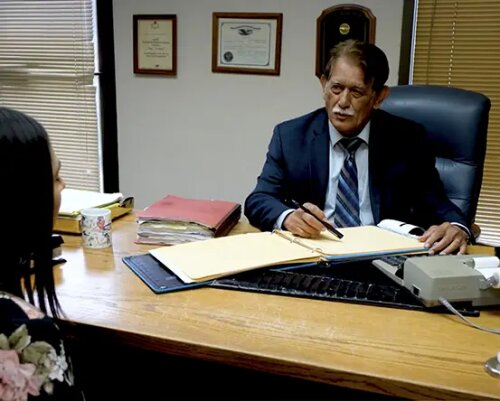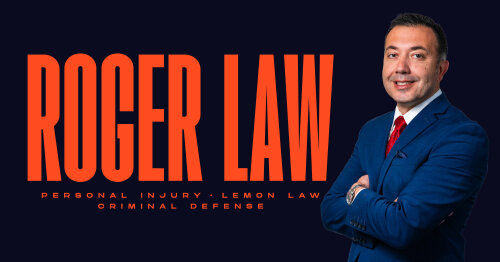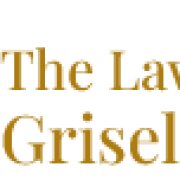Best Defamation Lawyers in Fresno
Share your needs with us, get contacted by law firms.
Free. Takes 2 min.
List of the best lawyers in Fresno, United States
About Defamation Law in Fresno, United States
Defamation is a civil wrong, or tort, that occurs when someone makes a false statement about another person that damages their reputation. In Fresno, California, as in the rest of the United States, defamation can take two primary forms: libel (written defamation) and slander (spoken defamation). California law, including statutes and court precedents, governs how defamation cases are analyzed and prosecuted in Fresno. The law seeks to balance the right to free speech with the protection of individuals from false and harmful statements.
Why You May Need a Lawyer
If you believe you have been defamed, or if someone has accused you of defamation, consulting a lawyer is essential. Legal professionals can help you understand whether you have a valid claim, gather necessary evidence, and guide you through the litigation process. Common situations where people in Fresno may need help with defamation include: false accusations in print or online, damaging social media posts, slanderous statements made in public, negative information spread in the workplace, or false reporting by media outlets. Legal advice is also necessary if you have received a cease-and-desist letter concerning alleged defamatory statements.
Local Laws Overview
Defamation law in Fresno is primarily governed by California law, specifically California Civil Code sections 44 through 48. Defamation is defined as an intentional publication of false statements that cause injury to someone's reputation. To succeed in a defamation lawsuit in Fresno, the following elements generally must be proven:
- The statement was made to someone other than the person being defamed
- The statement is false
- The statement is not privileged (such as statements made during official proceedings or in court)
- The statement resulted in harm to the victim's reputation or caused specific damages
California has additional protections for statements made in the media, and for speech related to matters of public concern under anti-SLAPP statutes. Special rules apply to public figures, who must also prove the statement was made with actual malice. Fresno courts follow these state-wide standards, with proceedings handled at the Fresno County Superior Court.
Frequently Asked Questions
What qualifies as defamation in Fresno?
Defamation in Fresno occurs when someone makes a false statement about another person to a third party, and that statement harms the person's reputation. The statement must be presented as fact and cannot be an opinion.
What is the difference between libel and slander?
Libel refers to written or published false statements, while slander refers to spoken false statements. Both are types of defamation, but the method of communication differs.
Does posting something online count as defamation?
Yes, posting false and damaging statements about someone online can be considered libel. Social media, blogs, and websites are all included under libel laws.
Can I sue for defamation if someone insults me?
Not all insults qualify as defamation. To be defamatory, the statement must be false, factual, and cause reputational harm. Pure opinions or offensive comments generally do not meet the legal standard.
How can I prove I have been defamed?
You must demonstrate that a false statement was made about you to others, that it caused damage to your reputation or finances, and, if you are a public figure, that it was made with malice.
What defenses are available against defamation claims?
Common defenses include truth (the statement is true), privilege (the statement is protected in certain settings, such as court), opinion (the statement cannot be proven true or false), and lack of harm.
Is there a time limit to file a defamation lawsuit in Fresno?
Yes. In California, you generally have one year from the date the allegedly defamatory statement was made to file a lawsuit. This is called the "statute of limitations."
Do public figures have a harder time proving defamation?
Yes. Public figures must prove actual malice, meaning the defendant knew the statement was false or acted with reckless disregard for the truth.
Can employers be sued for workplace defamation?
Yes. If an employer makes false statements about an employee that damage their reputation or career, the employee may have grounds to sue for defamation.
What kind of damages can I recover in a defamation case?
Successful defamation cases can result in compensation for actual damages (such as lost income), presumed damages, and in some cases, punitive damages if malice is proven.
Additional Resources
If you are seeking more information or support regarding defamation in Fresno, the following resources may be helpful:
- Fresno County Superior Court - for filing lawsuits and resources on local court procedures
- California Courts Self-Help Center - provides guides and resources for individuals representing themselves
- California Department of Consumer Affairs - offers guidance on rights and protections under California civil law
- Local legal aid organizations - such as Central California Legal Services for free or low-cost legal assistance
- State Bar of California - for lawyer referrals and information on finding qualified attorneys
Next Steps
If you believe you have been the victim of defamation, or have been accused of defamation in Fresno, consider taking the following steps:
- Document all statements and evidence related to the potential defamation
- Refrain from further public discussion of the issue until you seek legal guidance
- Consult with a licensed attorney experienced in defamation law in California
- Review any deadlines or requirements for filing a lawsuit in Fresno or the state
- If necessary, utilize local court self-help centers or legal aid organizations for additional support
Taking action early can help protect your reputation and legal rights. A qualified lawyer can evaluate your case, inform you of your options, and represent you in negotiations or court proceedings.
Lawzana helps you find the best lawyers and law firms in Fresno through a curated and pre-screened list of qualified legal professionals. Our platform offers rankings and detailed profiles of attorneys and law firms, allowing you to compare based on practice areas, including Defamation, experience, and client feedback.
Each profile includes a description of the firm's areas of practice, client reviews, team members and partners, year of establishment, spoken languages, office locations, contact information, social media presence, and any published articles or resources. Most firms on our platform speak English and are experienced in both local and international legal matters.
Get a quote from top-rated law firms in Fresno, United States — quickly, securely, and without unnecessary hassle.
Disclaimer:
The information provided on this page is for general informational purposes only and does not constitute legal advice. While we strive to ensure the accuracy and relevance of the content, legal information may change over time, and interpretations of the law can vary. You should always consult with a qualified legal professional for advice specific to your situation.
We disclaim all liability for actions taken or not taken based on the content of this page. If you believe any information is incorrect or outdated, please contact us, and we will review and update it where appropriate.














